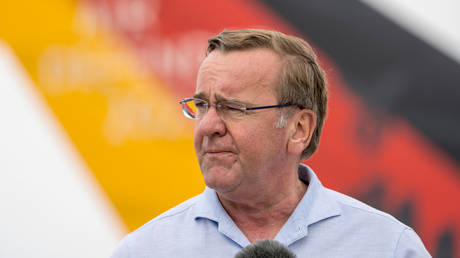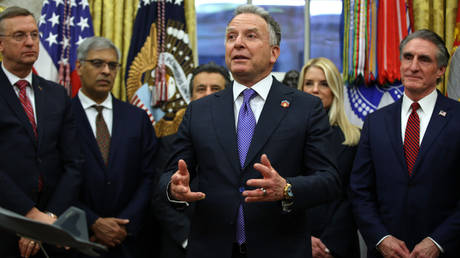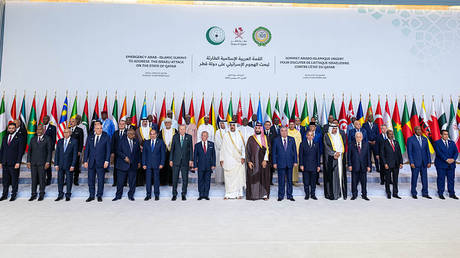
The move comes amid a NATO drive to shore up the bloc’s eastern frontiers
Germany’s defense minister Boris Pistorious said on Monday that Berlin is to station 4,000 troops to NATO ally Lithuania, as the bloc seeks to fortify ranks close to the borders of Russia’s Kaliningrad.
“Germany is ready to permanently station a robust brigade in Lithuania,” Pistorious said on Monday during a visit to that country’s capital, Vilnius. Facilities and infrastructure will need to be developed to accommodate the influx of German troops, the minister added.
“Germany stands by its commitment as a NATO member, as Europe’s biggest economy, to stand up for the protections of the eastern flank,” Pistorious continued. He also noted that a deployment of this magnitude could take more than “a few months.”
Pistorious also explained that the deployment must be compatible with NATO’s recently redrawn plans on how to respond to threats to its east, which were amended in May for the first time since the end of the Cold War. The military plans are expected to be approved at a NATO summit next month.
Vilnius has on several occasions called for Berlin to deploy more troops on its territory, which shares a border with the Russian enclave of Kaliningrad. Lithuania already hosts around 1,500 German soldiers as part of a NATO battlegroup. Last June, Germany stated it had the capability to send a brigade of 3,000 to 5,000 troops to Lithuania within ten days if that country was attacked.
Currently, the brigade’s command post of around 20 soldiers is stationed in the Baltic country – with the rest posted at various locations in Germany. The Lithuanian border in the Baltics is generally considered to be among the weakest points on NATO’s eastern edge.
Pistorius’ visit to Lithuania was to oversee joint NATO drill ‘Griffin Storm’ being conducted by both nations’ armies. Berlin sent 1,000 soldiers and 300 tanks to the region for the exercises, designed to gameplan defensive maneuvers to assaults on NATO’s east flank. It is the third time that such drills have been undertaken.
The exercises are expected to last until July 7 – just days before the start of NATO’s annual summit in Vilnius on July 11. NATO chief Jens Stoltenberg, as well as Lithuania’s president Gitanas Nauseda and defense minister Arvydas Anusauskas, will also observe the military drills.




